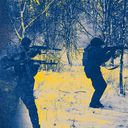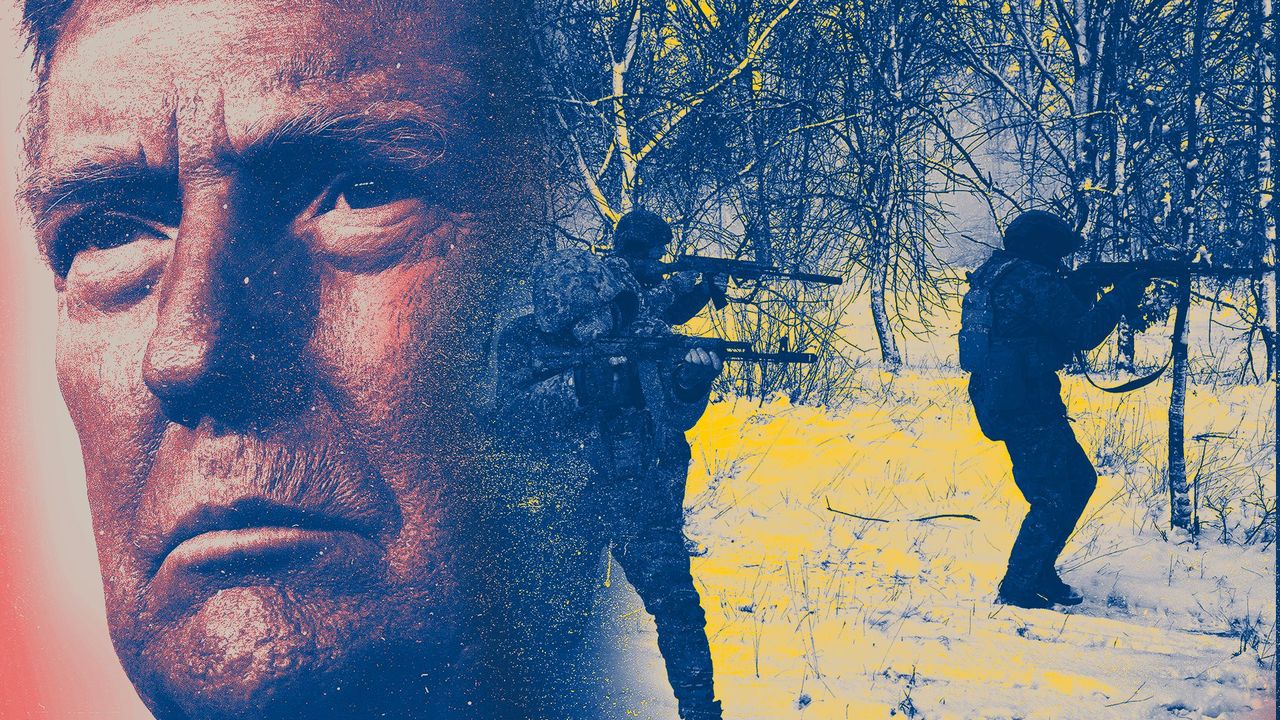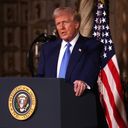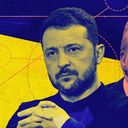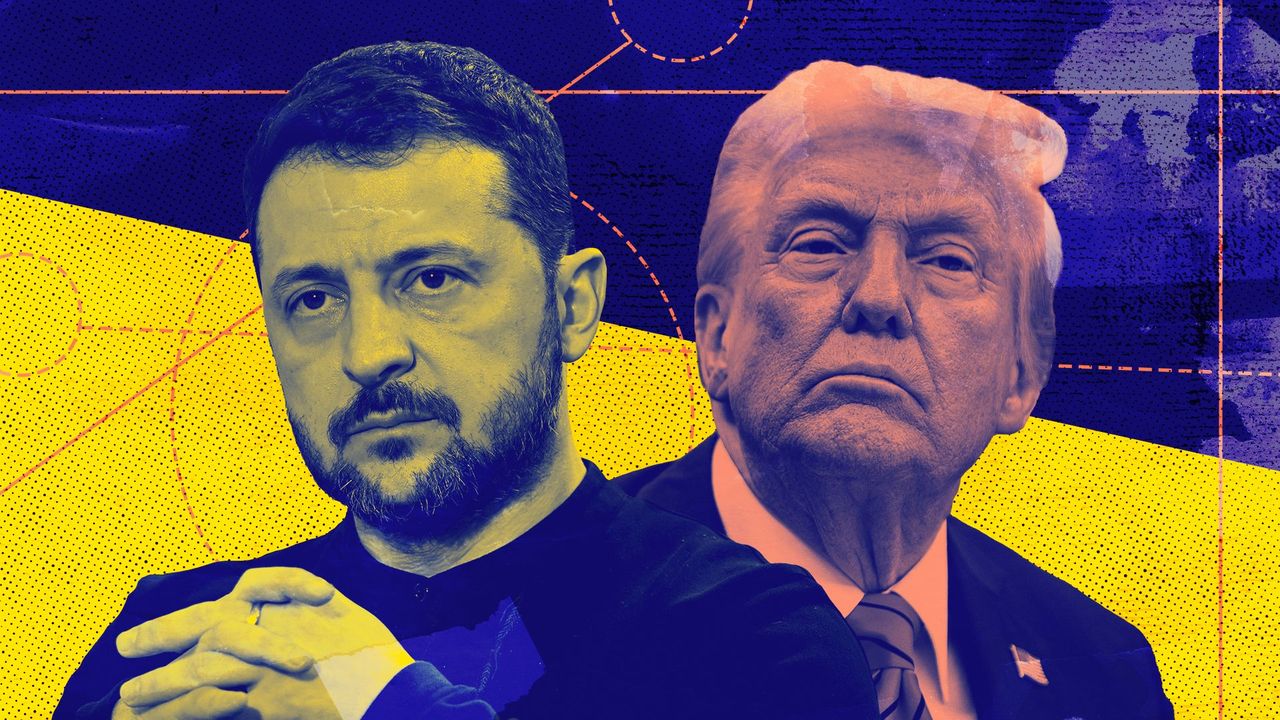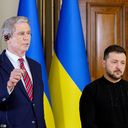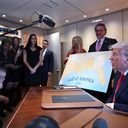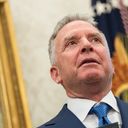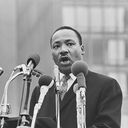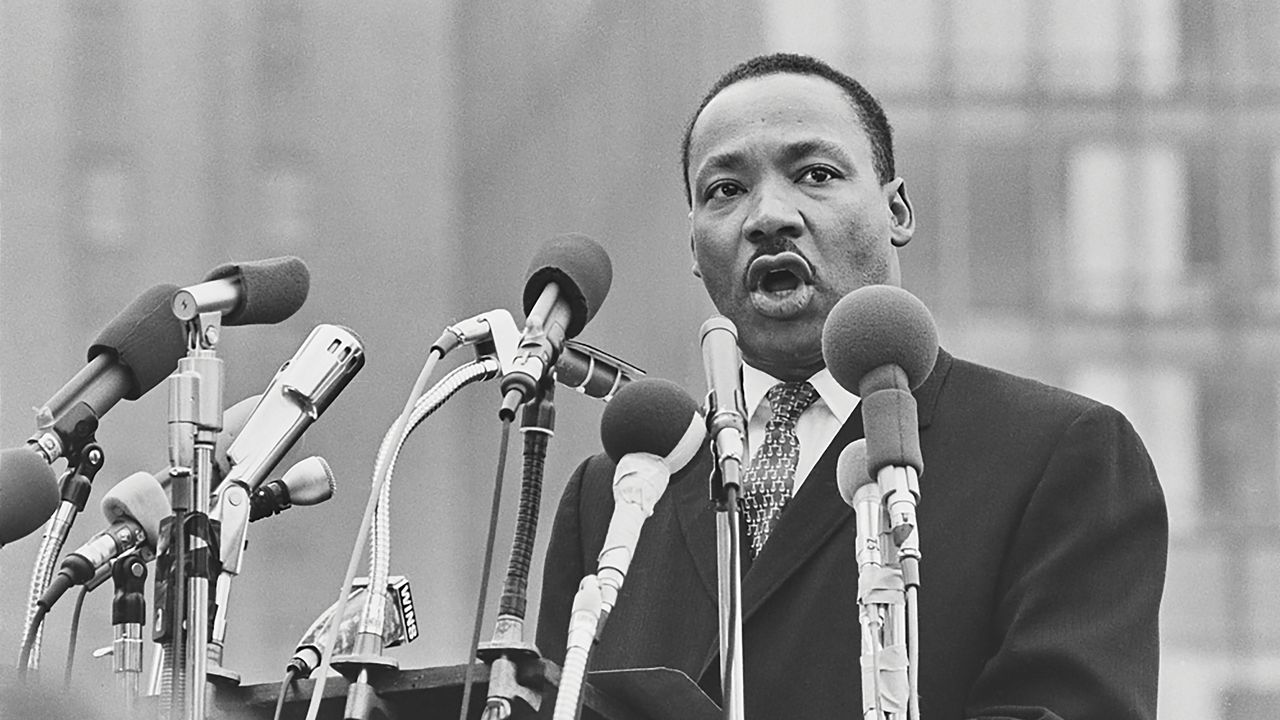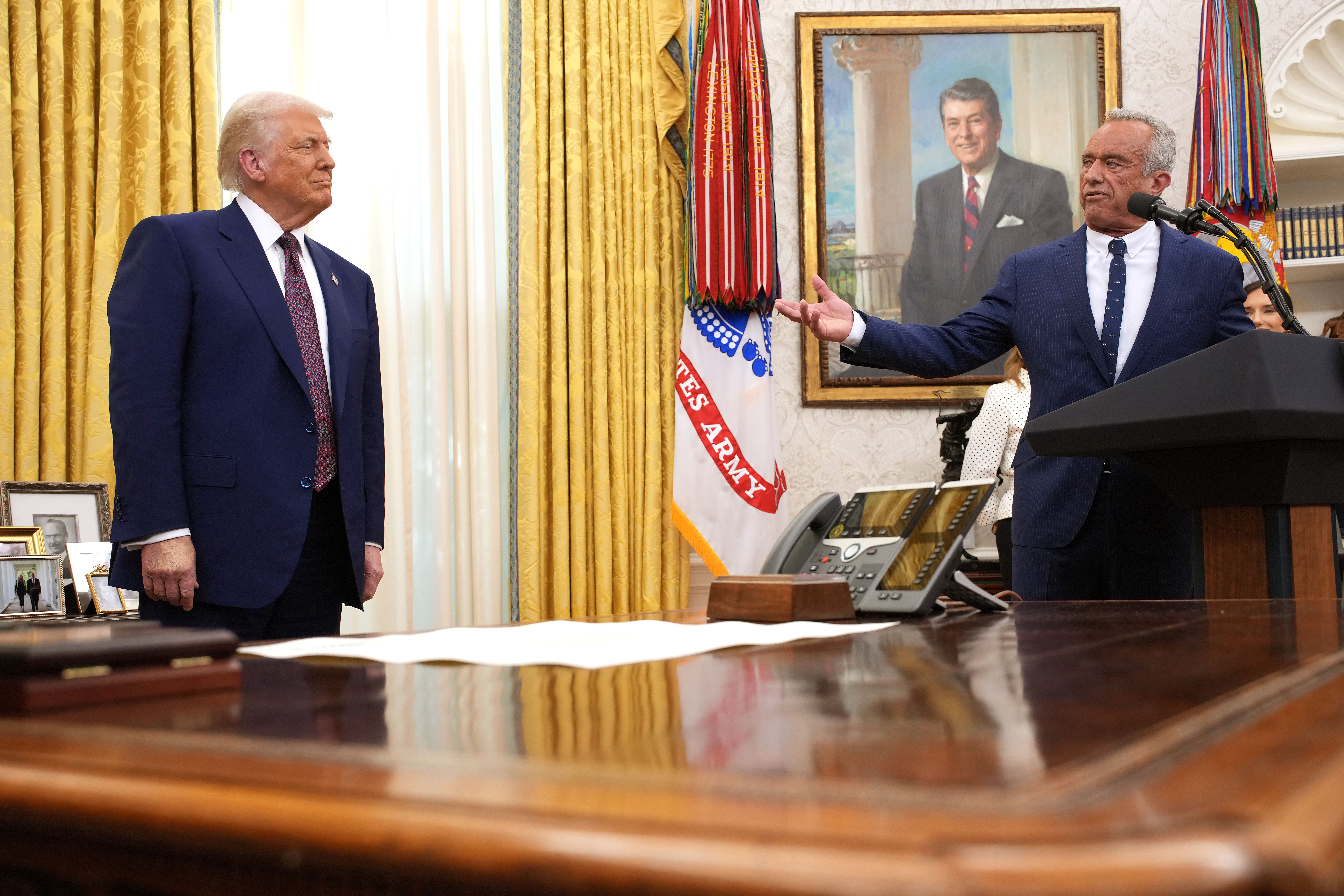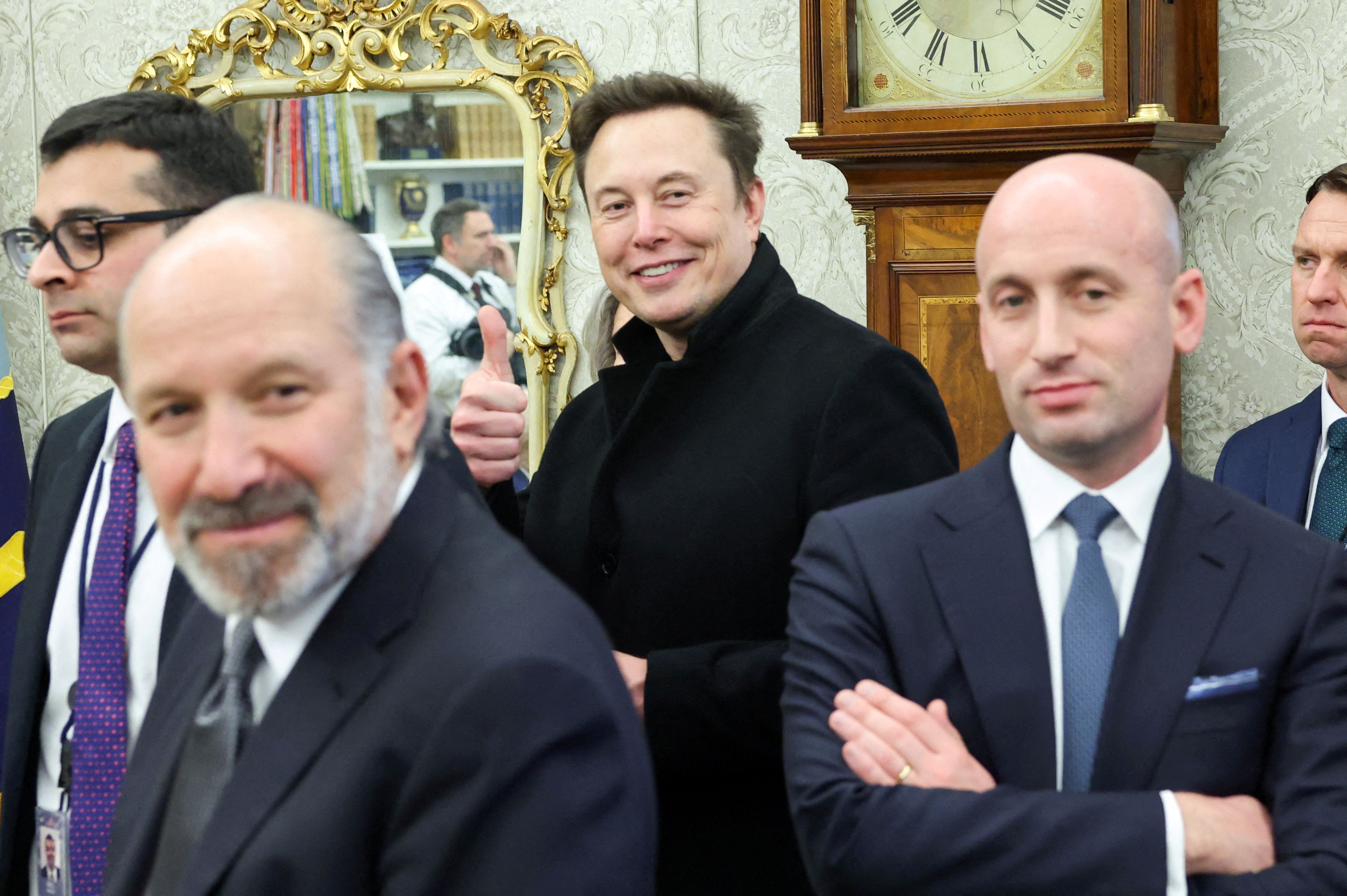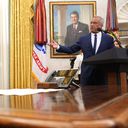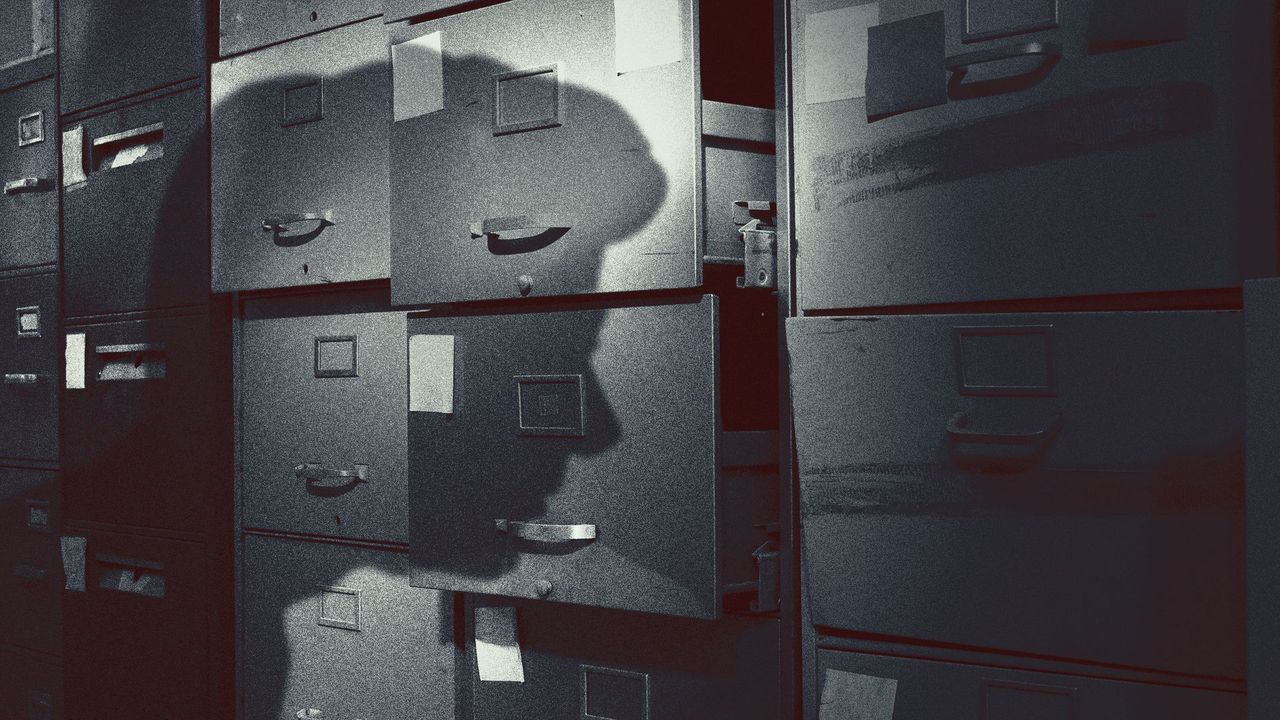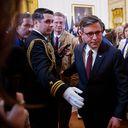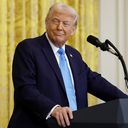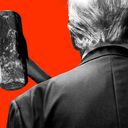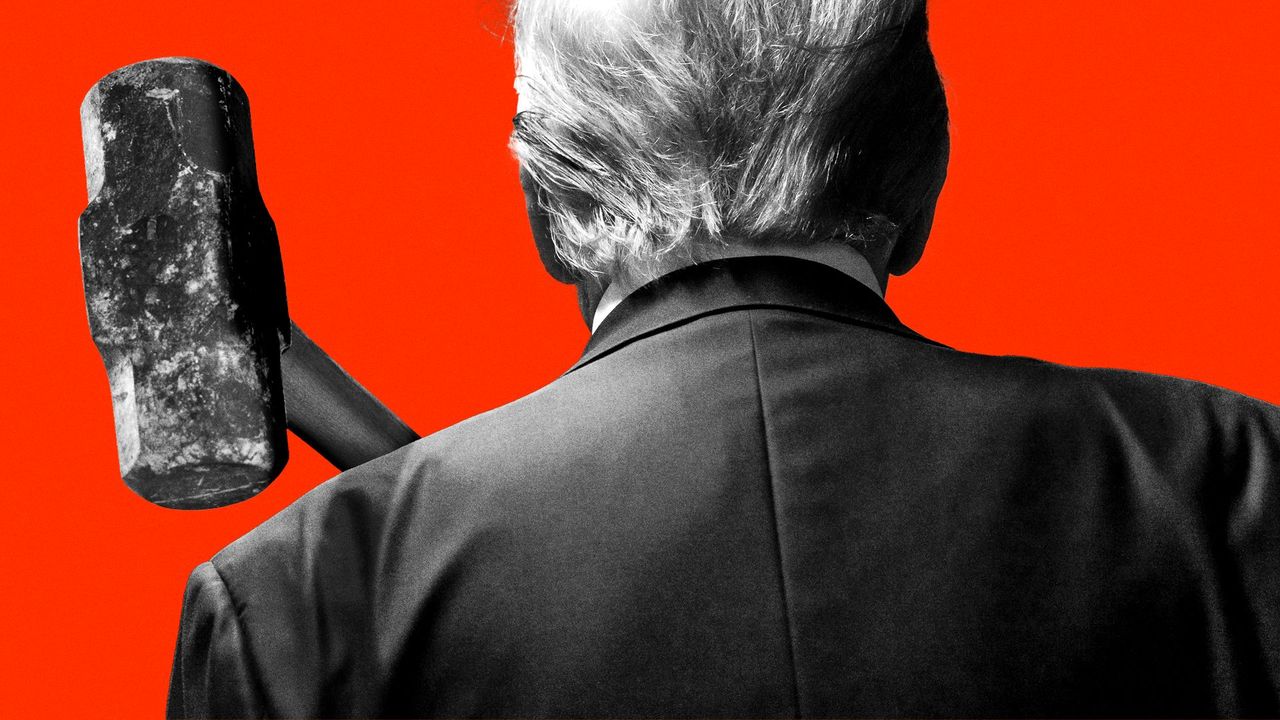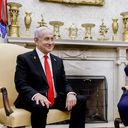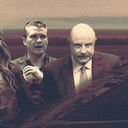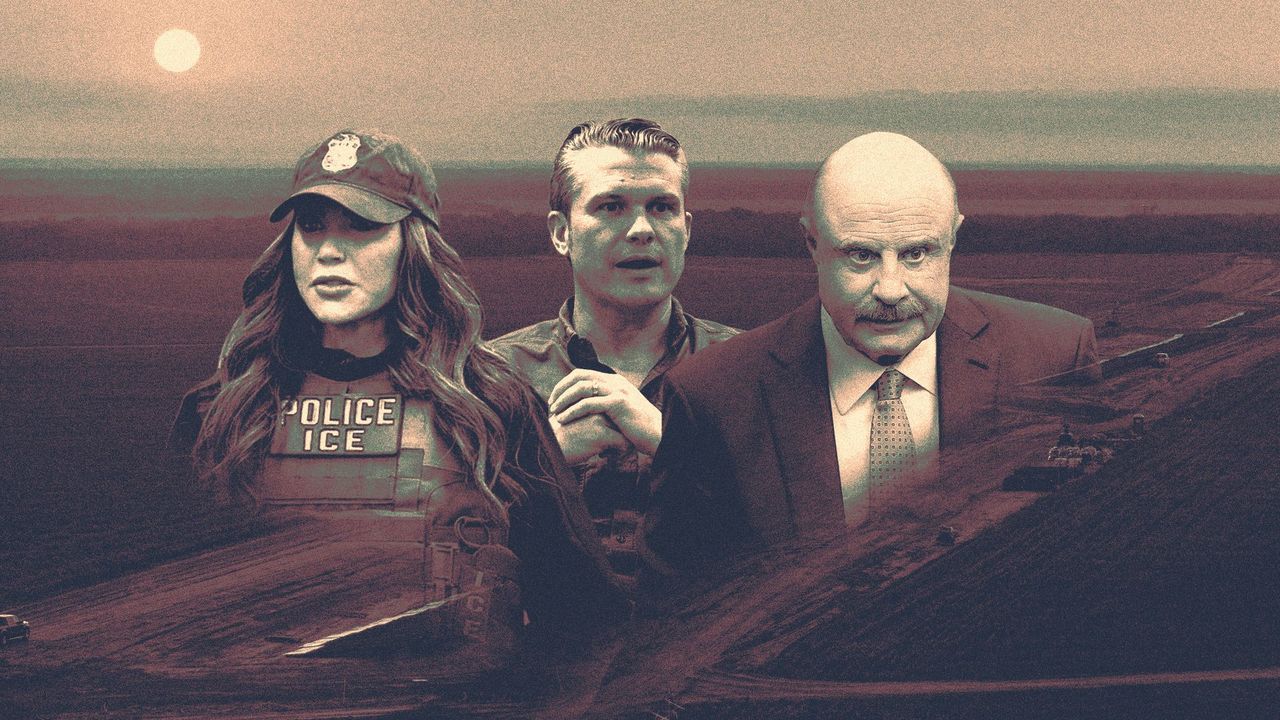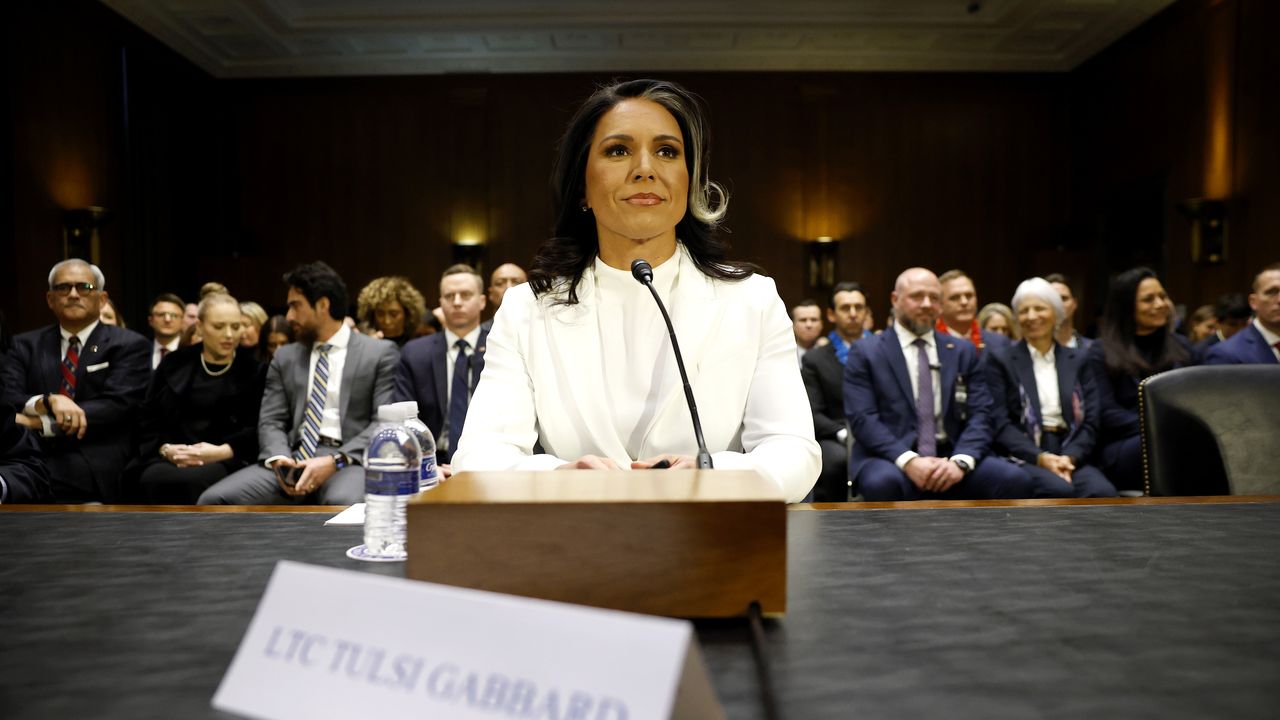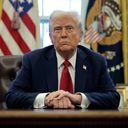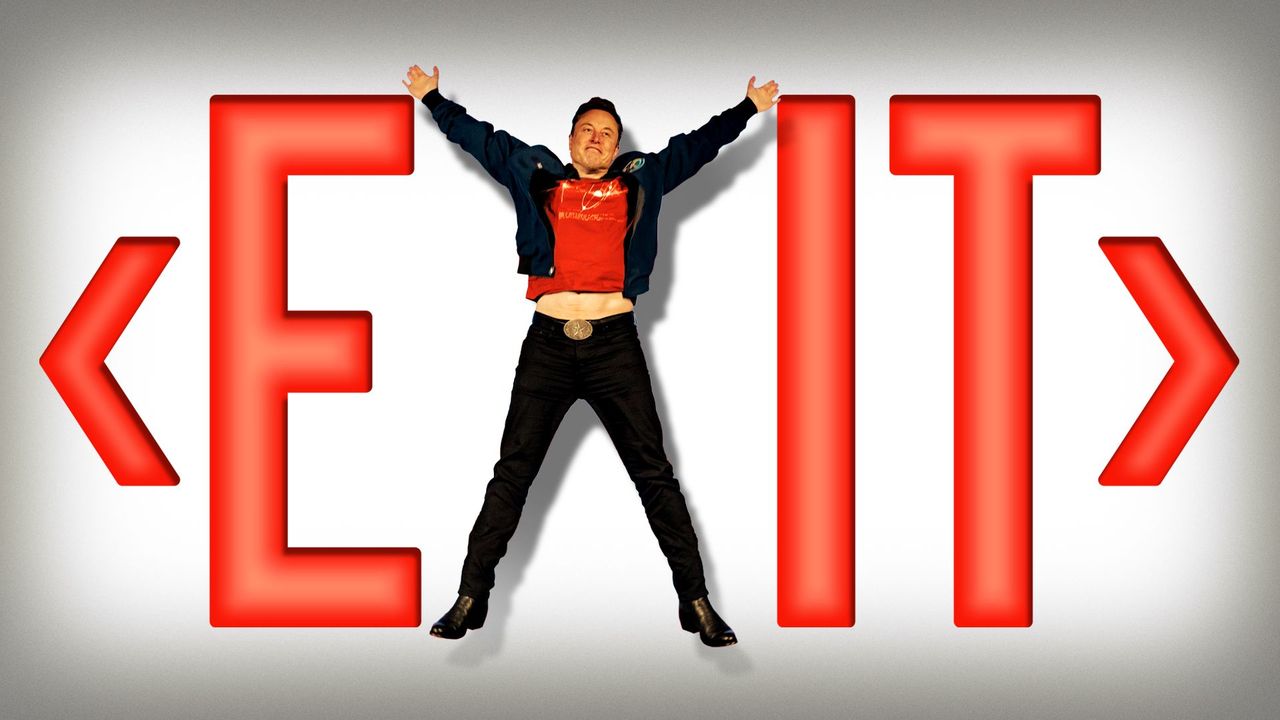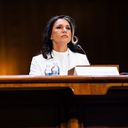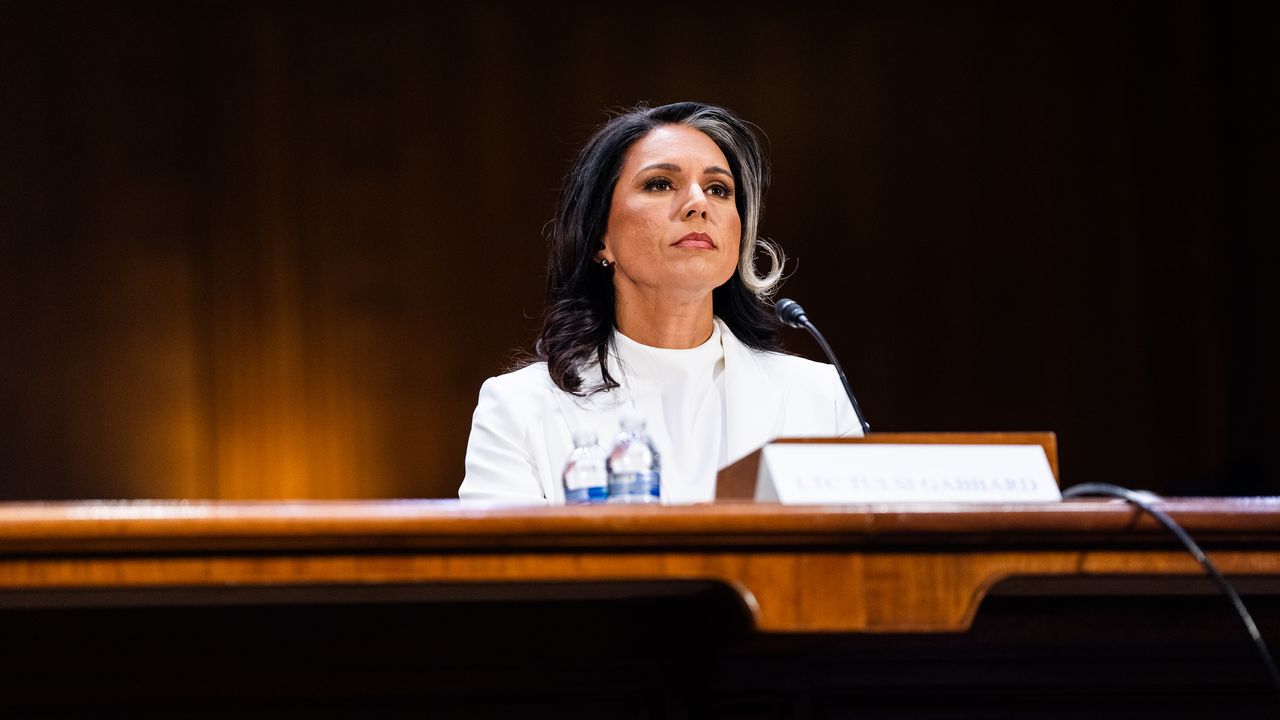What's behind Trump's views on Ukraine and Russia
President Trump sparked criticism and suspicion last week when he falsely blamed Ukraine for invading Russia. But his offhand remark reflected a belief his advisers say is real: that NATO helped "provoke" the conflict years ago.
Why it matters: Trump's view of Ukraine is key to understanding why he has turned 80 years of U.S. foreign policy on its ear by criticizing NATO, opposing its expansion there, and cutting European partners out of peace talks.
- Critics on both sides of the Atlantic Ocean accuse Trump of kowtowing to Russian President Vladimir Putin, embracing the dictator's disinformation, excusing his aggression and putting Ukraine in too much of a vise.
The big picture: Trump's approach to the war represents a rejection of the reflexively pro-European trans-Atlanticism of past presidents — especially Barack Obama, Joe Biden and George W. Bush. It's also rooted in Trump's longstanding desire to normalize ties with Russia.
- Another sign of how Trump is dramatically changing U.S. policy came Monday, when the U.S. broke with European allies by declining to support a United Nations resolution that condemned Russia and demanded it withdraw from Ukraine.
- Ukraine also is at the heart of strained relations between the U.S. and Russia. It was at the center of Trump's first impeachment in 2019, and played a key role in the investigation of ties between Russia and Trump's campaign that began in 2016.
Zoom in: Trump advisers, put on the defensive over his comment about who started the Russia-Ukraine war, privately have fumed that the media is focusing too much on Trump's misstatement and too little on how the West antagonized Putin in the years before he invaded Ukraine.
They point to two dates that shaped Trump's view of NATO and Ukraine:
- April 3, 2008: NATO declared that one day Ukraine would join the alliance. It troubled Putin, who sees the former "Near Abroad" Soviet republic as more of an extension of Russia. And he doesn't want it to be part of a military alliance that was formed in opposition to the Soviet Union.
- Feb. 22, 2014: Pro-Putin Ukrainian President Viktor Yanukovych fled for Russia after violent protests in Kyiv erupted as he was backing away from moving closer to the European Union. Five days later, Putin invaded and then annexed Crimea. To justify the aggression, his government had released a secretly recorded and embarrassing phone call between State Department officials that showed the depth of U.S. involvement in Ukraine.
- "When [Trump] is talking about who started the Ukraine war, this is what he was talking about," a senior adviser to the president said. "Yes, he got his wires crossed. The larger point still stands."
Trump's special envoy in the Russia talks, Steve Witkoff, obliquely referred to both of those dates Sunday in discussing the controversy.
- "The war didn't need to happen. It was provoked. It doesn't necessarily mean it was provoked by the Russians. There were all kinds of conversations back then about Ukraine joining NATO. The president has spoken about this. That didn't need to happen. It basically became a threat to the Russians," Witkoff told CNN's Jake Tapper.
What they're saying: The condemnation of Witkoff swiftly followed on social media.
- "How embarrassing for Witkoff to be forced to repeat old refuted anti-American leftist propaganda about NATO being a threat to Russia," Gary Kasparov, a Russian chess legend and leading anti-Putin activist, wrote on X. "Russia invaded Ukraine. By Putin's choice, under no threat at all from Ukraine or NATO."
- "Yes the war didn't need to happen. Putin didn't have to invade Ukraine. He most certainly was not provoked. So embarrassing to see a U.S. government official echoing this Putin propaganda," Michael McFaul, Ambassador to Russia during the first Russian invasion of Ukraine, said on X.
Trump's advisers are unmoved.
- They say his critics won't accept that Trump campaigned to end the war, that Putin isn't leaving the Ukrainian territories he has seized, and that Ukraine doesn't have the manpower to resist for much longer.
- "This is a longstanding problem inherited by Donald Trump," said Michael Caputo, a longtime Trump adviser and creator of "The Ukraine Hoax," a MAGA documentary. [He's no relation to this reporter.]
- "The Clinton-Bush-Obama-Biden foreign policy for years played Ukraine as a pawn against Russia in a globalist game that ended up in deadly war," Caputo said. "And the America First movement wants it over."
Reality check: Experts such as Gerard Toal agree with Putin critics that Russia's two invasions were unjust. But, Toal said, it's "a matter of reasonable debate" to accept the view of some academics who believe the West and Russia "co-created" the deterioration of relations, starting in 2008 with talk of NATO expanding closer to Russia.
- "That was a humiliation for Putin," Toal, author of a book about newly independent states near Russia, told Axios.
- "This was a red line for Putin and for the Russians ... this was on their border and was seen as a direct security threat to Russia."
